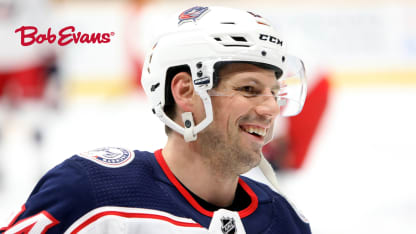It means a lot. Just the journey to get back means more than the actual playing of the game. That's where you learn the most and that's where I've learned the most. I hope people start to realize, they always want to skip the journey. People want to go to the NHL, they want to not go to the American league or whatever, but if you embrace it and go through it and grind through it, you're going to learn so much more by the time you do get to the NHL. Nothing was guaranteed, that's for sure. I put no expectation on myself because I didn't know. I didn't know what would be OK, what would not. It's been a lot of time. I had three repairs last year and four repairs just now in March now, so nothing is ever guaranteed, but that's the beauty of it, right? Why would I ever want it to be guaranteed? I want to earn what I'm given and that's what I thought I did this year. Getting the chance obviously with the injuries, that's not up me, that's not up to anybody else, that just happens in this game. It's unfortunate, but to contribute to a team that is such a tight group, playing as one, it's special to me and I think everybody just glued together to win games. Sometimes it's ugly, but at the end of the day, you just win the game and we did that as a team.


